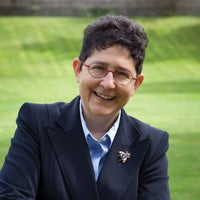- Professor Emerita
- Email: mcapp@uri.edu
- Website
Biography
Trained as both a poet and as a literary and cultural theorist at SUNY/Buffalo’s center for the psychoanalytic study of the arts, Mary Cappello composes essays, memoir, literary nonfiction and experiments in prose, always with the aim of bringing a poetic sensibility into concert with a scholarly ethos. Cappello likes to take on unfathomables and to find, or invent, a form for them. She likes to write about things that are fundamental to our being but beyond our comprehension. Often enough, her work treats the ungraspable center of language itself. Her six books include a mnemic collage based on a twinned legacy of violence and creativity in her Italian/American family; an anti-chronicle meant to thwart the ritualized routine of breast cancer treatment in the US; a detour on awkwardness—ontological, diplomatic, aesthetic, and social; discursive double portraits on the forms that friendship took between gay men and lesbians in the age of AIDS; a lyric biography of a medical pioneer and his cabinet of swallowed and aspirated things; and, most recently, the mood fantasia, Life Breaks In: A Mood Almanack (University of Chicago Press, 2016). Her work appears frequently in literary journals and anthologies as well as in more popular venues such as the New York Times, Salon.com, the Huffington Post, on NPR, in guest author blogs and in on-line dialog with other writers and thinkers. Her theoretical and pedagogical writing about the essay addresses such matters as queer aesthetics; discursive autobiography; epistolary critique; the uncommon archive; digression; alternative histories of the essay; the essay in performance; creative nonfiction and lyric essay; and the very question of whether creative writing can be taught. Cappello’s numerous research, teaching, and literary honors include The Dorothea Lange-Paul Taylor Prize from Duke University’s Center for Documentary Studies; The Bechtel Prize for Educating the Imagination from Teachers and Writers Collaborative; a Fulbright Lectureship (Gorky Literary Institute, Moscow); a Guggenheim Fellowship in Creative Arts/Nonfiction; and a Berlin Prize (American Academy in Berlin). LECTURE, her lyric manifesto on the lost arts of the lecture, the notebook, and the nap recently inaugurated Transit Books’ Undelivered Lecture Series. She is currently working on a book-length essay on dormancy and dormant states, and a suite of studies (literary études) inspired by the shifting sands of temporality and of attention in the information age. She is a founding member of the new WEB-based journal, Speculative Nonfiction.
Research
Creative Writing; Literature and Medicine; Sound Studies; Nineteenth Century American Literatures; Poetics of the Essay; Literary Nonfiction and Documentary Art
Education
- Ph.D., State University of New York, Buffalo
- M.A., State University of New York, Buffalo
- B.A., Dickinson College
Courses Taught
Creative Writing Seminars and Workshops in Literary Nonfiction; Experimental Nonfiction; the Contemporary Memoir in Theory and Practice; and Poetry. Antebellum US Literature: “Literary Acoustics”/the Acoustics of Space; US Authors: Charles Chesnutt and James Baldwin; Edgar Allan Poe and Louisa May Alcott; Charles Chesnutt and Henry James; Literature and Medicine: An Ethics of Care; Literature and Medicine: Anatomies; Immigrant Subjectivity and Documentary Discourse; Women Writers: Emily Dickinson and Gertrude Stein; Women and Literature: The Gothic; Women and Literature: Autobiographical Acts; Contemporary Performance Art and the Discourse of Performance in Feminist Theory; Women and Film; l9th c. American Women Writers; Literary Genres: The Poem; Principles of Literary Study; The Politics of Marginality; American Literature to l900: Gender, Race, and Nation; Nineteenth Century American Women Writers; Oppositional Poetics; Poetry and Other Critical Acts; ENG339: Literary Nonfiction as dreamwork.

